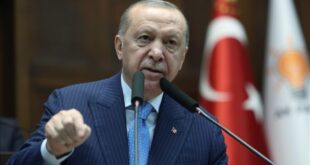In a conversation in 2020 with Princeton Professor Emeritus, Richard Falk, he told me that historically, colonised nations that have won the legitimacy war have always won their freedom.
Palestine is unlikely to be the exception. The Gaza war, however, is confronting the world with an unprecedented challenge, specifically to governments’ relationship with international law, their obligations to international institutions, such as the United Nations, the International Court of Justice, the International Criminal Court and others.
“The government is not legitimate unless it is carried on with the consent of the governed,” English philosopher, John Locke, said in the 17th century. This is not a mere theory, and it will always be applicable.
Consent, however, does not always reflect itself in the form of transparent and democratic elections. Legitimacy and loyalty to governments can be expressed in other ways as well. Those who do not respect this maxim could easily find themselves embroiled in political upheavals and violent rebellions resulting from popular dissent.
To maintain a degree of international consensus, the United Nations was founded in 1945. It was obvious, from the very start, that the UN did not truly reflect the universal desires of all people. To the contrary, it was structured based on a hierarchical power paradigm, where the victors of World War II emerged as the masters, assigning themselves veto rights and permanent membership at the UN Security Council. As for the serfs, they were assigned with far less consequential seats in the General Assembly.
The UN provided the absolute minimum platform of international legitimacy, but its unequal structure spurred yet another conflict, expressed in the words of British scholar, Adam Groves, who described the “privileged status of the permanent five” in the UNSC not only “as a Western-centric relic of the past, but worse, a means for the status-quo powers to limit the influence and development of other states”.
To survive the inequality of the new international system, smaller countries worked together to create alternative, albeit smaller, political bodies within the larger institutions. They used their large numbers to overcome the concentrated power in the hands of the few. They exploited every margin to represent the rights of the world’s poorest and most oppressed nations.
The Non-Aligned Movement (NAM), founded in 1961, was one of several examples that served as, though in relative terms, a success story.
Throughout the years, the US and its Western allies moulded their own version of ‘legitimacy’ in the way they interpreted international law, in the way they vetoed UN resolutions whenever it did not serve their interests and in the way they isolated defiant members.
During the Soviet era, the UN and its relevant institutions seemed nominally balanced, as the world was, indeed, divided between east and west, which gave NAM and other mostly Global South-based organisations and alliances greater political value.
Back then, China’s economic power did not allow it to impose its version of legitimacy on the rest of the world.
Things have changed. The Soviet front crashed in the early 1990s, breaking down a power paradigm that allowed Moscow to maintain a balancing act. On the other hand, China rose in power, slowly acquiring greater influence, thus legitimacy, from countries that grew reliant on the Chinese economic engine.
Another shift is underway. When one listens to the impassioned speeches of Russian, Chinese, Brazilian, South African, Irish, Egyptian, Saudi and UAE representatives, one can see that international consensus is strongly coalescing around the legitimacy of international and humanitarian laws, not only regarding the ongoing war on Gaza, but in other matters of international peace and justice.
Yet, when US Ambassador, Linda Thomas-Greenfield, raised her hand for the fourth time, on 20 February, casting yet another veto, thus rejecting the Algerian call for an immediate humanitarian ceasefire in the Gaza Strip, another pillar of international legitimacy broke down.
Even at the ICJ, when the whole world made a case for Palestinian freedom, the US opposed. “The Court should not find that Israel is legally obligated to immediately and unconditionally withdraw from occupied territory,” the acting legal adviser for the US State Department, Richard Visek, said on 21 February.
Ironically, the US has resorted to these various institutions, including the ICC, of which the US is not even a member, to rationalise its actions in Iraq, in Serbia, in Libya, in Ukraine and many other areas of conflict.
There will be consequences to all of this, and the coming years will prove that the crisis in international legitimacy, resulting from the abuse of power, will hardly be rectified with superficial changes and reforms. The problem is now much more profound and destructive, and the price is simply too high to bear.
Military might alone is hardly enough for any country to acquire and sustain its legitimacy. Neither does economic influence or clever diplomacy. For legitimacy to be maintained, it requires much more than this, starting with the very basic premise that the spirit of international law was not meant to prolong war, but to end it.
 Eurasia Press & News
Eurasia Press & News




